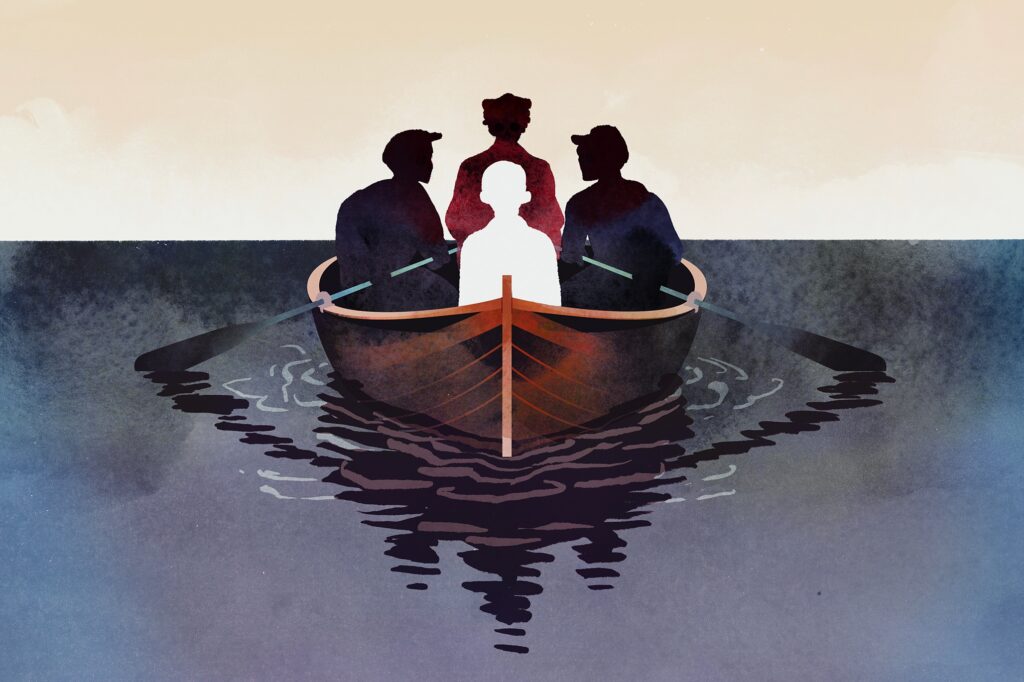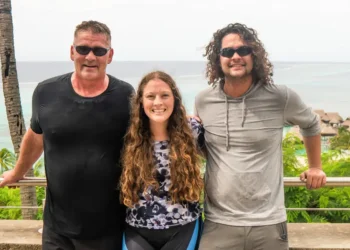Adam Cohen is the author of “Captain’s Dinner: A Shipwreck, an Act of Cannibalism, and a Murder Trial that Changed Legal History.”
A towering wave wrecked the yacht Mignonette on a voyage from England to Australia in 1884, and the crew of four escaped in a lifeboat. They drifted for weeks, and when thirst and hunger became overwhelming, the captain made a grim decision: kill and eat the cabin boy. He slit the throat of 17-year-old Richard Parker, and the men survived by drinking the boy’s blood and eating his flesh until they were rescued by a passing ship.
Survival cannibalism at sea was actually quite common. “The custom of the sea,” as it was quaintly known, had been occurring for centuries, and no English sailor had ever been charged with a crime for engaging in it. But times had changed. Back in England, the captain, Thomas Dudley, and the mate, Edwin Stephens, were convicted of murder and sentenced to be hanged, though the punishment was later commuted to six months’ imprisonment. (The third crew member, Edmund Brooks, did not participate in the killing — and became a witness for the prosecution.) The days when the law looked the other way while cabin boys were killed and eaten had ended.
The Mignonette story might sound like a tale out of a Halloween house of horrors, but for many students it is something else: part of the curriculum. The decision finding the crew members guilty is a staple of the first-year of law school and popular in undergraduate moral reasoning classes. The Queen v. Dudley and Stephens, as it is known, also exerts a powerful real-world influence on American and British law and ethics today.
Why has a Victorian-era tale of an ill-fated cabin boy had such staying power? It is certainly a gripping human drama. Dudley at first had trouble getting anyone to agree to his plan for survival, but before long Stephens was on board, and the captain considered that enough. Dudley knew on some level that what he was doing was wrong: He prayed to God for forgiveness so that “our souls might be saved.” But that did not deter him. At the appointed hour, he took out his penknife and approached the cabin boy, who exclaimed, “What, me, sir?,” an indication that he knew what was coming.
Part of the fascination, undeniably, is the cannibalism. Freud called it one of the “instinctual wishes,” along with incest and the lust to kill. We like to hear about it and laugh nervously about it. Monty Python has a classic skit about cannibalism in a lifeboat (which descends into a debate over who would taste best). I first heard about the Mignonette case in law school, when my roommate and I threw a “Come as Your Favorite Case or Legal Doctrine” Halloween party. My roommate (who is now a federal judge) lightheartedly came as the cannibal captain, with ketchup-splattered raw chicken parts around his neck.
But Dudley and Stephens has endured not because of the people eating, but because of the act at the heart of it— the killing of Richard Parker. It poses a simple but profound question: Is it ever justified to kill an innocent person to save the lives of others?
That is the issue discussed in first-year criminal law classes. In certain circumstances, an accused criminal can make a “necessity defense,” arguing that they committed a crime to avoid greater harm. If someone takes their neighbor’s car without permission in order to take a sick baby to the hospital, they can make a necessity defense to a charge of auto theft. The question Dudley and Stephens raises is whether this plea should be allowed when it comes to a charge of murder. That is, can choosing the “lesser of two evils” ever be an excuse for killing someone?
The case plays an even larger role in philosophy courses. Justice, one of the most popular courses at Harvard University, has an entire class on this case and for good reason. It embodies one of the great chasms in modern philosophy — between utilitarians, who believe acts are moral when they produce the greatest good for the greatest number, and adherents of rights-based theories of justice, who believe that some acts, such as murder, are inherently wrong. Dudley and Stephens is a great teaching text because it lets students look beyond these philosophical abstractions to consider what they would do if they were in the lifeboat.
In his decision in the Mignonette trial, Lord Chief Justice John Duke Coleridge rejected the necessity defense, insisting it could not overcome the prohibition on murder. Coleridge’s opinion is one of the greatest human rights decisions in Anglo-American law, because it recognized that we all have the right to live out our own lives — even if those in power believe it would be more efficient to take them from us.
The case has changed the law of murder, not only in Britain, but in the United States. American law used to allow the necessity defense in homicide cases. After Dudley and Stephens, the rule in most jurisdictions became that the necessity defense cannot justify killing.
Dudley and Stephens has also become an ethical touchstone for real-world decision-makers. At the start of the covid-19 pandemic, when there was a ventilator shortage in Britain, the British Medical Association declared that health professionals might have to take ventilators away from patients who were “stable or even improving” if someone with a better chance of surviving showed up. It was a purely utilitarian calculus that put the original patient at greater risk of dying.
John Harris, a prominent British medical ethicist, wrote a scathing response in a leading medical journal, arguing that taking a ventilator away was not only unethical, but illegal. In explaining why, he reached back 136 years to Dudley and Stephens. The basic issue was the same, he said: You cannot kill innocent people (or put them at heightened risk of dying) in the hope of saving more lives. Harris called his essay “Why Kill the Cabin Boy?”
The post How a Victorian-era cannibalism case shaped modern law
appeared first on Washington Post.




